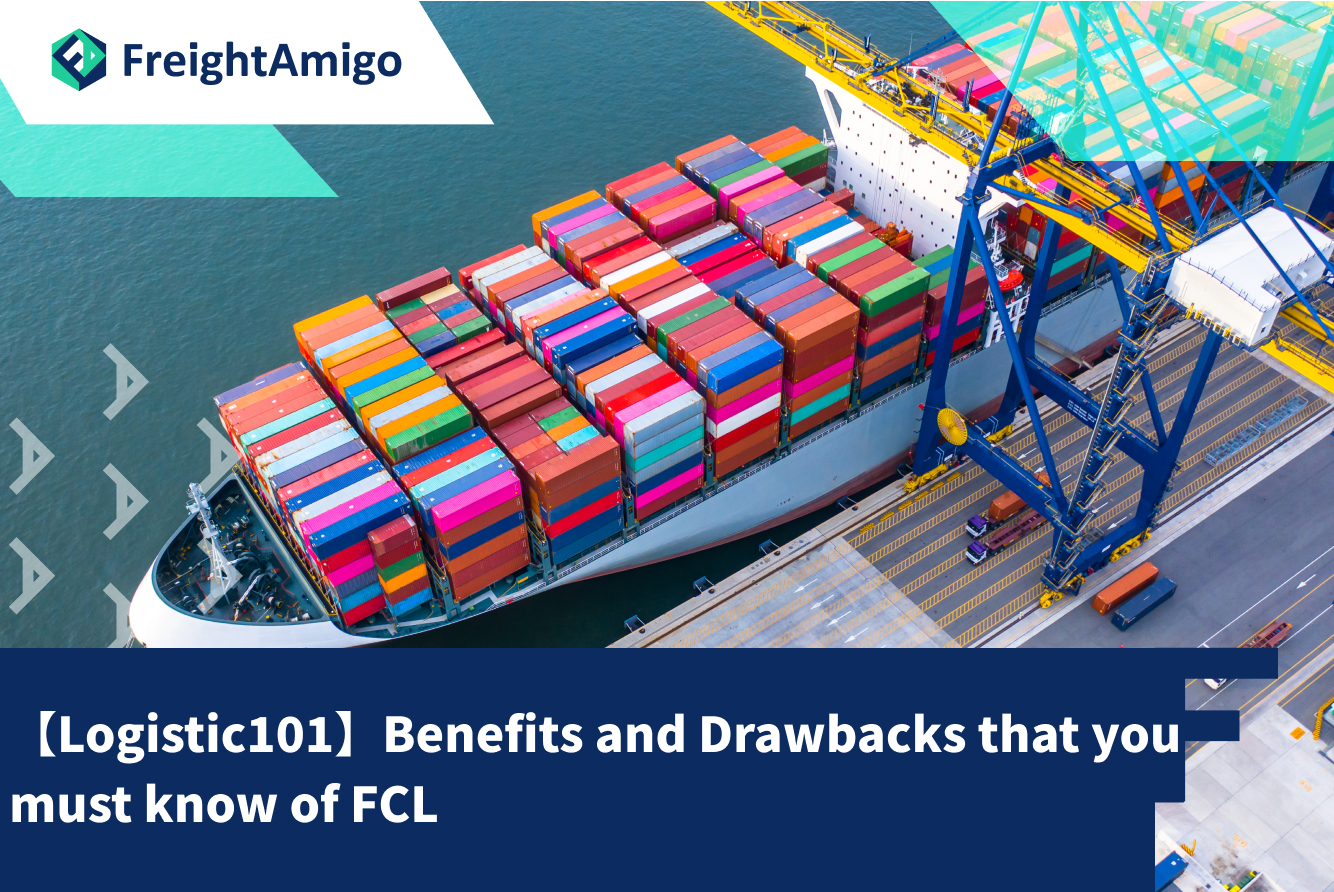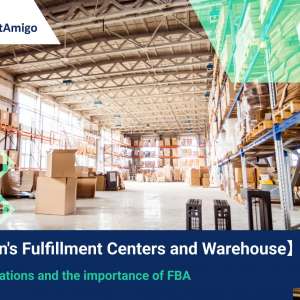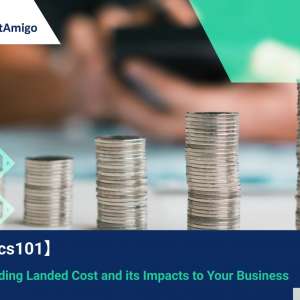Author Name:Tiffany Lee – Marketing Analyst at FreightAmigo
When it comes to shipping goods internationally, there are several options available, including Full Container Load (FCL) shipping. FCL shipping involves filling an entire shipping container with your cargo and shipping it to your destination. While FCL shipping offers several benefits, such as lower shipping costs per unit and greater security for your goods, it also has some drawbacks, such as longer transit times and the need to have enough cargo to fill a container. To help you make an informed decision about whether FCL shipping is the right choice for your logistics strategy, this article will explore the benefits and drawbacks of FCL shipping.
FreightAmigo helps you simplify the freight procedure and control the freight time more accurately! If you are planning to ship goods overseas, please go to the FreightAmigo page for inquiries.
Definition of FCL
With cargo loads large enough to fill a 20′ or 40′ shipping container, there is a type of maritime shipping known as FCL. FCL shipments make use of the entire container, as opposed to LCL shipments, which share container space with other goods. This suggests that the container is loaded and sealed at the plant before being filled and delivered to the warehouse.
Benefits of FCL
- Containers are sealed at the plant, decreasing handling and lowering the risk of damage.
- FCL shipments are not mixed with other shipments, which shortens the transit time.
- Paying a fixed rate for FCL rather than a high rate per unit for Less Than Container Load is more economical for larger shipments (LCL).
- Although air freight is the quickest method of shipping, if speed is not a top priority, choosing FCL can save you a lot of money.
In conclusion, FCL shipping provides quicker transit times, a lower chance of damage, cost savings for larger goods, and a reasonably priced substitute for air freight.
Drawbacks of FCL
- Finding and paying for additional storage space is necessary when shipping greater volumes.
- FCL might not be economical for lighter loads (around 13 cubic meters or less).
- Some factories can lack the staff and equipment necessary to provide a container that is fully loaded.
- As managing large shipments within constrained delivery windows are required for FCL shipping, the process might become more challenging.
In conclusion, the drawbacks of FCL shipping include the need for extra storage space, higher prices for smaller cargoes, difficulties in locating the right machinery and staff, and a rise in the complexity of delivery logistics.
Advises that help you get better FCL shipping prices
If you are shipping FOB, be sure to provide your seller with the precise origin port. By supplying this information, you can boost the accuracy of your pricing quote because prices can vary based on the port.
Book your FCL package well before the scheduled pickup. Booking early gives you the best chance of receiving the best price since as carrier space fills up, costs rise. This is particularly crucial during the busy season.
Be certain of your shipment’s exact weight. With the help of this information, you and your forwarder can choose the right containers and machinery for inland and maritime transportation to your factory. Given that the US has stricter weight restrictions on interior trucking than Europe, it is imperative to arrange for distinct weight limits for sea vessels, rail, and trucking. If you don’t prepare for this, you can incur unforeseen costs for specialized equipment.
How to Calculate FCL Shipping Fees
Using the FreightAmigo platform can help you better calculate the shipping time. You only need to enter the shipping address (origin and destination), cargo weight, cargo quantity, and amount on the platform, and the platform can provide the estimated transportation time of different transportation companies. FreightAmigo helps you handle different customs clearance procedures and more accurately control the arrival time to meet customer expectations.
Want to compare the best Express, Air Freight, Sea Freight, Rail Freight & Trucking rates so as to have better control on cost?
Extended Readings
【Logistic101】What is FCA?| Meaning and Usage of Incoterms
【Logistic101】 CIP Meaning and Usage of Incoterms
【Guide to Sea Freight】 What is Sea Freight? Common term, Pros & Cons
If you have any inquiries on logistics/supply chain, feel free to contact FreightAmigo now:
Chat with us online OR
Phone / WhatsApp: +852 28121686









































